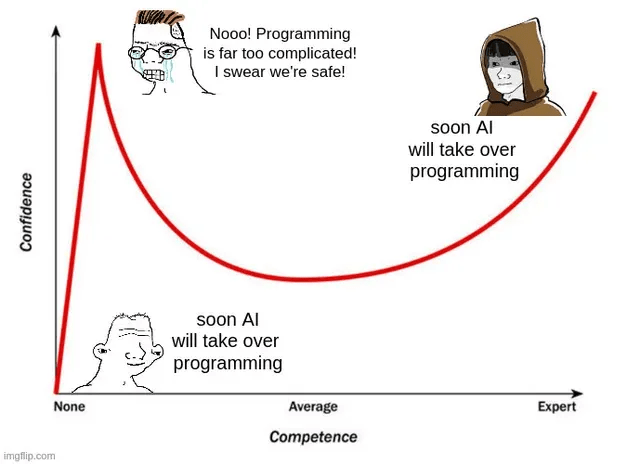In a move that has once again shaken the tech industry, Microsoft new layoffs have sent ripples across the global programming community. The company, known for its software dominance and steady innovation, has announced a fresh wave of job cuts, confirming what many programmers feared most: even tech giants are not immune to the cold winds of economic uncertainty and shifting priorities.
For developers and engineers, the implications go far beyond pink slips. These changes point to a deeper transformation in the way big tech operates, reshaping not just job security but the future of programming careers.
The Hard Truth Behind Microsoft's Decision
Earlier this year, Microsoft had already made headlines with strategic job cuts. But the Microsoft new layoffs announced this quarter hit particularly hard. Affected employees span several departments, including engineering, AI, cloud computing, and customer support.
Why is this happening? Microsoft cites ongoing “restructuring efforts” and realignment of resources toward “AI-first” priorities. In other words, as Microsoft pours billions into AI and cloud infrastructure, traditional roles are being replaced or merged under new verticals.
For many programmers, the message is clear: adapt or be replaced.

The Reality Check for Developers - Microsoft New Layoffs
The phrase Microsoft new layoffs is more than just a headline; it’s a wake-up call. Even highly skilled programmers in high-demand areas like machine learning and backend development are feeling the pressure.
These layoffs reveal a painful truth: coding talent alone isn’t a safety net anymore. In a world where AI tools like GitHub Copilot (owned by Microsoft itself) can generate code, the value proposition of a human developer is rapidly evolving.
What This Means for Programmers
Let’s break down the ripple effects of Microsoft’s new layoffs on developers:
1. Job Security Is No Longer About Tenure
In the past, working at a tech giant like Microsoft almost guaranteed stability. Today, no role is safe, not even if you’re in a core product team.
2. AI Skills Are Becoming Non-Negotiable
Microsoft’s aggressive shift towards AI, including their investments in OpenAI, signals that the demand is less for generalist programmers and more for AI-literate engineers who understand prompt engineering, model fine-tuning, and data optimization.
3. Remote Work Is on the Chopping Block
Some of the laid-off roles were reportedly remote or hybrid. This may indicate a trend where companies prefer tighter, in-office teams for sensitive projects—another blow to those enjoying flexible work setups.
4. Freelancers and Contractors Are the First to Go
Contract-based programmers are often among the first to be laid off. Microsoft’s new layoffs have shown again how fragile these positions can be when budget cuts hit.
The Bigger Picture: A Shift in Tech Industry Dynamics
While Microsoft is the current headline, it’s far from the only one making such moves. Google, Meta, and Amazon have also carried out large-scale layoffs in the past 12–18 months.
However, what makes Microsoft's new layoffs particularly symbolic is that the company is leading the charge in AI integration. They’re building the tools that might eventually reduce demand for human programmers or at least redefine what programming means.
AI is now writing code, debugging software, and even reviewing pull requests. If you’re a developer who hasn’t yet embraced AI as part of your toolkit, you might be next in line.
What Can Developers Do Now?
Instead of fearing these layoffs, developers can treat them as a signal for self-reinvention. Here’s how:
- Upskill in AI & ML: Learn about prompt engineering, model deployment, and how to integrate AI APIs in real-world projects.
- Build a Personal Brand: Layoffs can happen, but your digital footprint—your GitHub profile, blog, or YouTube channel—can attract new opportunities.
- Explore Entrepreneurship: Use your coding skills to create SaaS products, digital tools, or freelance offerings instead of relying solely on jobs.
- Focus on Business Value: Learn to think like a product owner. Developers who understand business outcomes will always have a place at the table.
Final Thoughts
Microsoft new layoffs are not just corporate news - they’re a clear message that the rules of the tech world are changing. Programming as a career is no longer only about writing clean code - it’s about adaptability, continuous learning, and understanding how your work drives value in an AI-dominated ecosystem.
This isn’t the end of the road for developers, but it is a fork in the road. And those who refuse to pivot may find themselves left behind.
So, ask yourself: Are you ready to evolve?
If you’re exploring new opportunities or simply want to stay ahead of industry shifts, we’ve also curated a list of the Top IT Companies in the USA that continue to drive innovation and offer growth opportunities.

